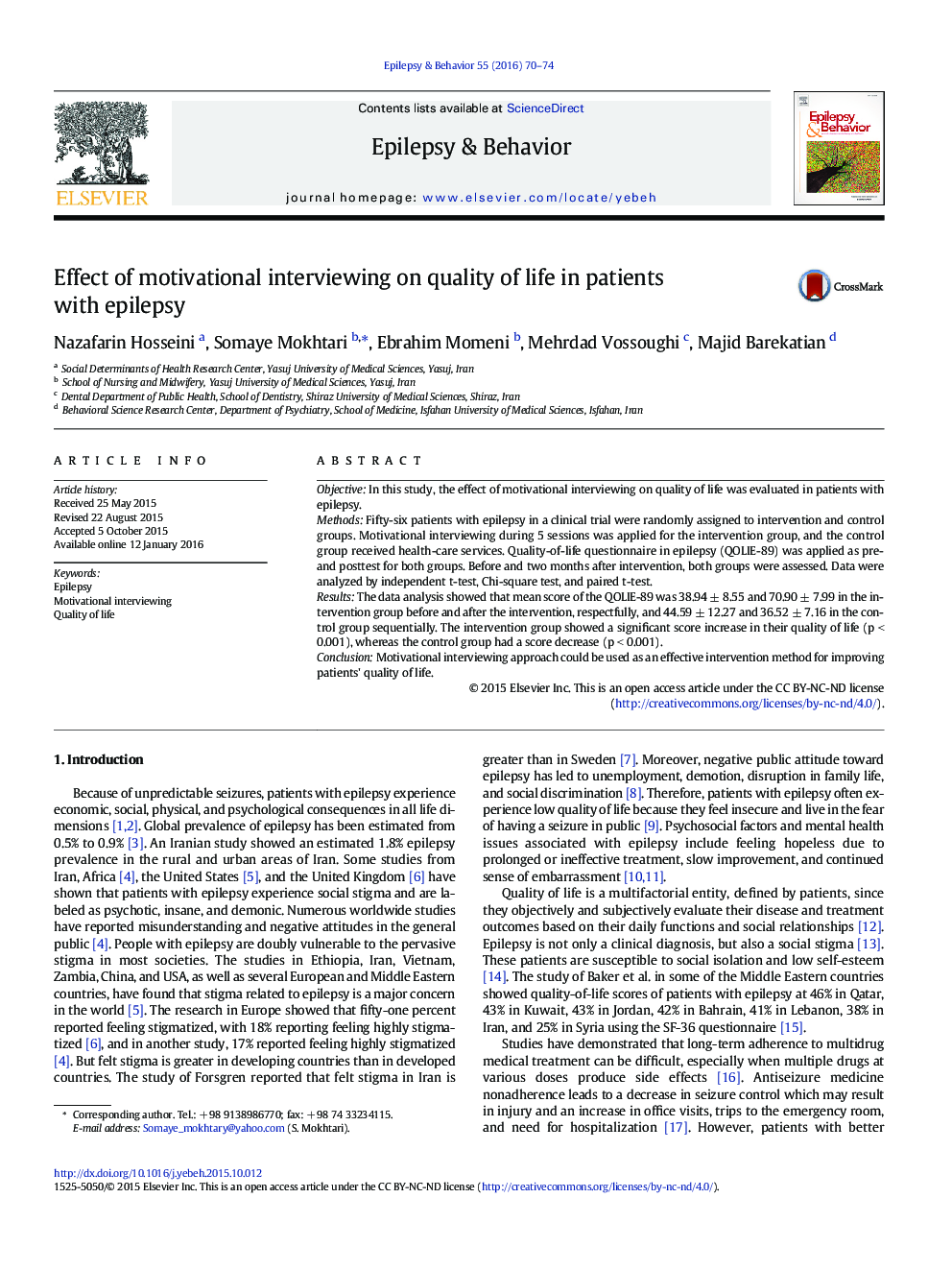| Article ID | Journal | Published Year | Pages | File Type |
|---|---|---|---|---|
| 6010689 | Epilepsy & Behavior | 2016 | 5 Pages |
â¢Motivational interviewing caused a significant increase in all QOL subscales.â¢Motivational interviewing changed behavior and lifestyle.â¢There was no significant difference in sexual satisfaction of both groups after intervention.â¢QOL scores in the control group showed a significant drop after research intervention.â¢Motivational interviewing increased energy of patients with epilepsy more than other subscales.
ObjectiveIn this study, the effect of motivational interviewing on quality of life was evaluated in patients with epilepsy.MethodsFifty-six patients with epilepsy in a clinical trial were randomly assigned to intervention and control groups. Motivational interviewing during 5 sessions was applied for the intervention group, and the control group received health-care services. Quality-of-life questionnaire in epilepsy (QOLIE-89) was applied as pre- and posttest for both groups. Before and two months after intervention, both groups were assessed. Data were analyzed by independent t-test, Chi-square test, and paired t-test.ResultsThe data analysis showed that mean score of the QOLIE-89 was 38.94 ± 8.55 and 70.90 ± 7.99 in the intervention group before and after the intervention, respectfully, and 44.59 ± 12.27 and 36.52 ± 7.16 in the control group sequentially. The intervention group showed a significant score increase in their quality of life (p < 0.001), whereas the control group had a score decrease (p < 0.001).ConclusionMotivational interviewing approach could be used as an effective intervention method for improving patients' quality of life.
